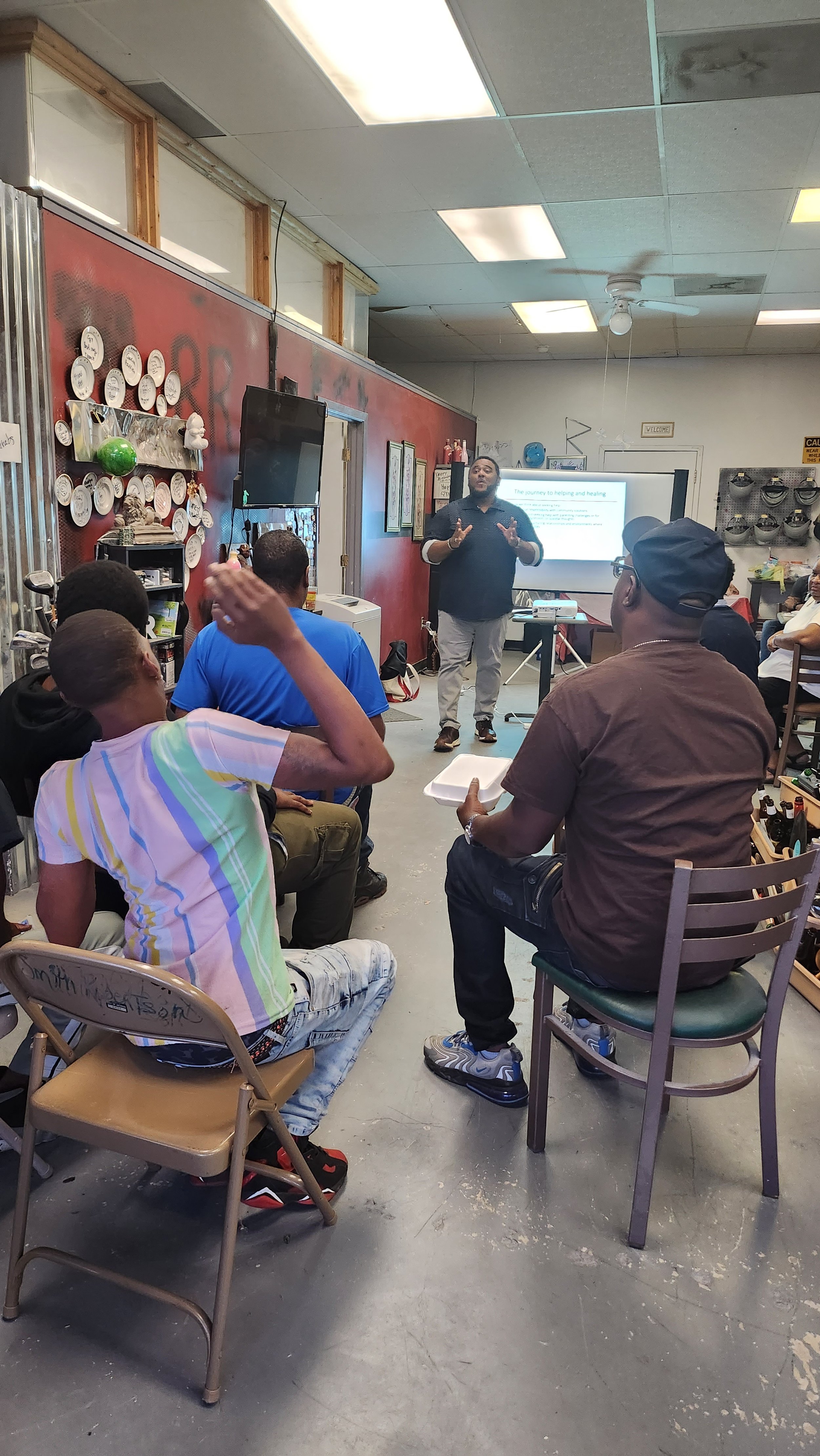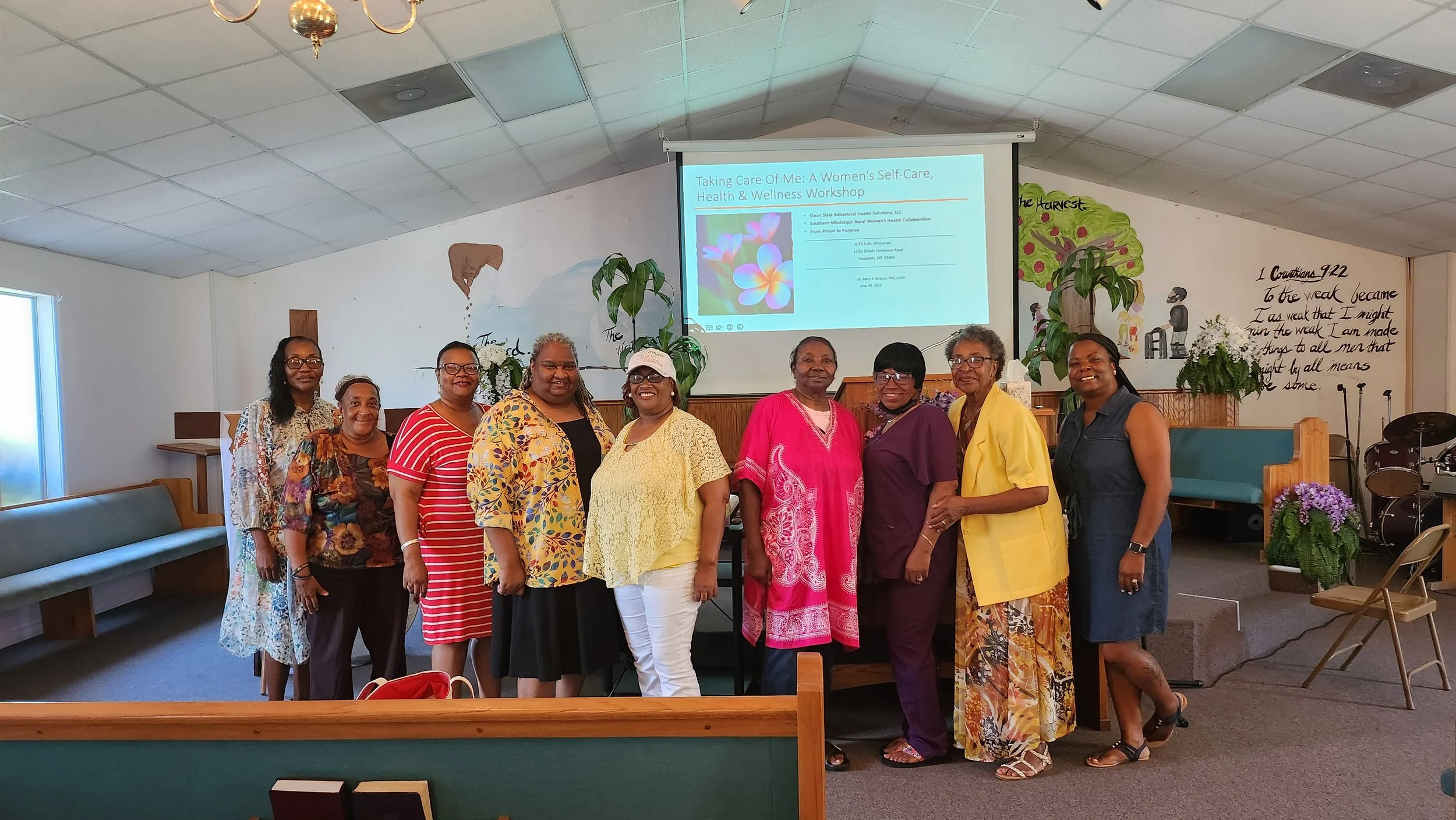Services
We provide a range of topics for trainings and workshops (CEU credit approved) from a trauma-informed care perspective (TIC) that are targeted for all ages and backgrounds.
In addition to our community trainings and workshops that have set curriculum, we offer the ability to tailor private trainings and workshops to fit the needs of participants.
Training Topics
-
This topic examines the historical and current impact of trauma on African Americans, and provides strategies to create policies and practices that promote healing and well-being.
-
This topic examines the concept of vicarious trauma and the triggers that can result from exposure to trauma through others, and offers strategies for self-care and resilience.
-
This topic highlights the unique challenges faced by Black individuals, families, and communities dealing with mental health trauma, and dives into culturally-responsive approaches to healing and support.
-
This topic covers motivational interviewing, a counseling approach that focuses on helping individuals find the internal motivation to make positive changes in their lives, by exploring and resolving their doubt towards change.
-
This topic addresses the trauma and abuse that can occur in faith-based communities, and offers strategies for healing and regaining a sense of wholeness, including exploring the role of spirituality in healing.
-
This topic explores the impact of trauma on men and boys, and its connection to anxiety and the school-to-prison pipeline and offers strategies for resilience-building.
-
This topic covers the trauma of toxic relationships and how to move towards healthier relationships to help provide women with tools and support to heal.
-
This topic explores the impact of exposure to violence on individuals and communities, and the resulting trauma that can have enduring effects on mental health and well-being.
-
This topic dives into the interconnectedness between sexual violence, substance abuse, and incarceration, and the disproportionate impact that trauma has on girls and women who experience these forms of violence and punishment.
-
This topic explores the complex emotions and psychological effects of trauma, grief, and loss on individuals, and strategies for coping and healing.
Contact us to inquire about training topics.
Clean Slate In Action

Jones County First Responder Trauma-Informed Care Workshop- image and spotlight by WDAM-TV- Laurel, MS

Men's Healing Exercise on Grief and Loss at the Rage Room in Jackson, MS

On-site Success Career Training for Dependable Source Corporation's truck drivers

Dr. Timothy Neyland conducting wellness session for men on Acting Out-Understanding Childhood Experiences with Trauma at The Rage room

Drs. Nelums and Osby presenting at a workshop in Foxworth, MS on May 20, 2023. This project was supported by Grant No. 2019-WR-AX-0013 awarded by the Office on Violence Against Women, U.S. Department of Justice.

Drs. Nelums and Osby presenting at a workshop in Foxworth, MS on May 20, 2023. This project was supported by Grant No. 2019-WR-AX-0013 awarded by the Office on Violence Against Women, U.S. Department of Justice

Drs. Nelums and Osby presenting at a workshop in Foxworth, MS on May 20, 2023. This project was supported by Grant No. 2019-WR-AX-0013 awarded by the Office on Violence Against Women, U.S. Department of Justice.
Partnerships
We partner with community organizations who help further the greater good with specific emphasis on those that have our same hope in mind: increase the prioritization of health, stability, and innovation in diverse communities.
-

Direct Decedents of Harris Neck Community (DDHNC)
Dr. Osby has a long-standing partnership with DDHNC in which she provides trauma healing workshops and gives speeches for the community.
The mission of the Direct Descendants of Harris Neck Community is to pass on the history of approximately 75 African American families that lived in Harris Neck before the Diaspora over 80 years ago.
-

Social Justice
Productive meeting with our Social Justice partners: Olivia Trasbayh, Noyes Foundation, New York and Cassandra Welchlin, Mississippi Black Women's Roundtable, Jackson, MS.
-

At His Feet Ministry
Donation in support of their work with individuals coming out of incarceration, homeless families, and those struggling with drug and alcohol addiction.
-

Black Family Summit
Along with other agencies, nonprofits, and community activist, the an annual Black Family Summit (BFS) for Mississippians creates a space to gather to discuss issues facing the Black community and create impactful change for future generations.
BFS information can be found at mffk.org.
-

Mississippi Families for Kids
Donation in support of their work with foster care children, relatives raising others’ children, and other social service projects in underserved communities.
-

University of California San Francisco
Productive meeting with our research partner from University of California San Francisco, Dr. Kelsey Holt.
